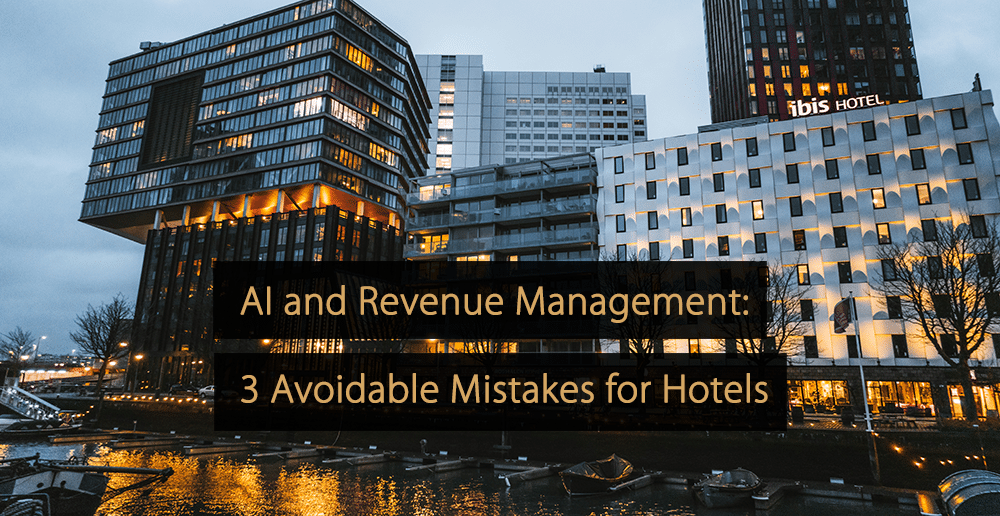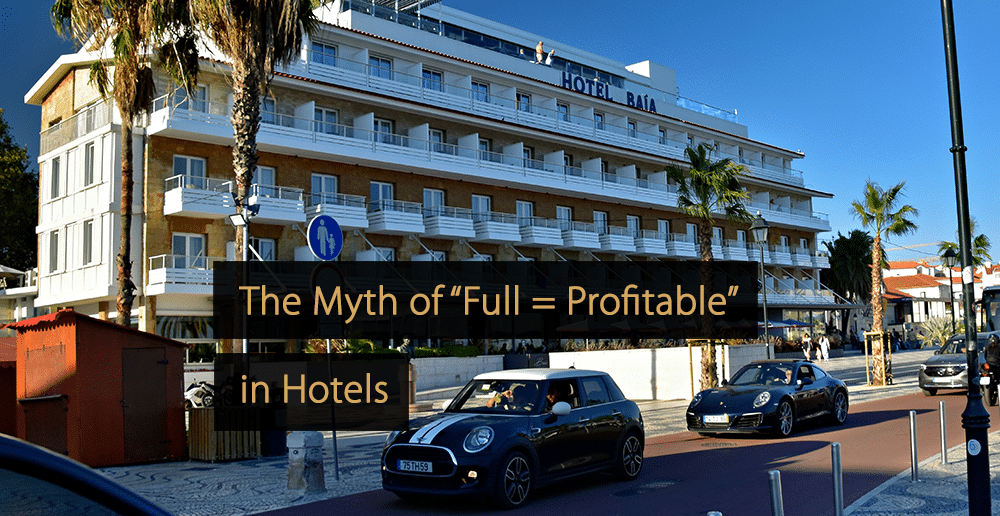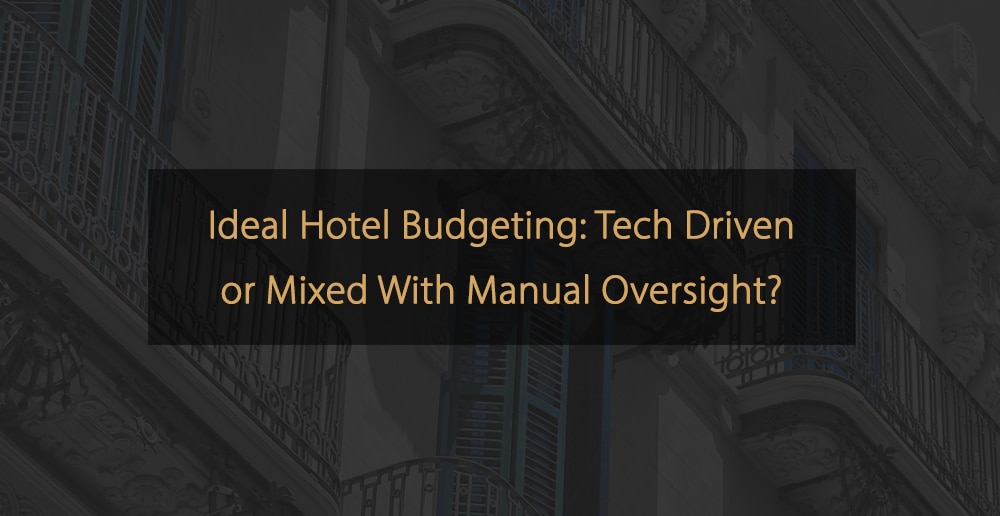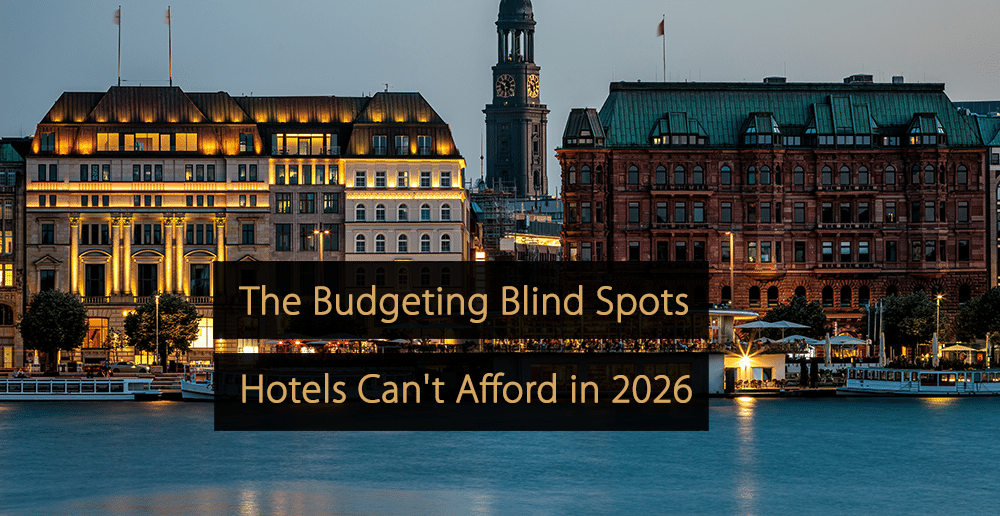Question for Our Revenue Management Expert Panel:
How can hospitality organisations leverage revenue management tools more effectively to uncover deeper insights into guest behaviour and forecast booking patterns with greater accuracy?
Industry Expert Panel
Our Industry Expert Panel exists out of professionals within the hospitality & travel Industry. They have comprehensive and detailed knowledge, experience in practice or management and are forward-thinking. They are answering questions about the state of the industry. They share their insights on topics like revenue management, marketing, operations, technology and discuss the latest trends.
Our Revenue Management Expert Panel
- Chaya Kowal – Director of Revenue Management, Potato Head Family
- Pablo Torres – Hotel Consultant
- Massimiliano Terzulli – Revenue Management Consultant, Franco Grasso Revenue Team
- Mariska van Heemskerk – Owner, Revenue Management Works
- Heiko Rieder – Senior Vice President Commercial & Distribution, Step Partners Europe
- Dermot Herlihy – Group Revenue Director, Orascoma Hotels Management
- Silvia Cantarella – Revenue Management Consultant, Revenue Acrobats
- Ask Our Panel a Question
- Join Our Expert Panel
“Integrating all revenue management tools is crucial for a holistic understanding of demand and more efficient decision-making. This means connecting the Property Management System (PMS), Revenue Management System (RMS), market intelligence tools, and, most importantly, POS data from all outlets, including F&B, spa and wellness, and retail stores. A well-integrated system not only tracks room revenue, but also provides insights into total guest spending, allowing hotels to optimise pricing and promotions across different revenue streams.
Beyond internal data, leveraging external market intelligence is key. Tools that provide competitor pricing, demand tracking, and search trends (such as flight traffic and hotel searches for the destination) help hotels stay ahead of shifts in demand. By analysing these patterns, hotels can adjust their pricing strategy in real-time to capture more bookings at the right price.
A granular approach to room type performance and segmentation by geo markets is also essential. Hotels should analyse which room types perform best across different markets and adjust inventory allocation accordingly. For example, some markets may prefer suites, while others lean towards entry-level rooms, and segmenting by business Vs. leisure travellers can further refine optimisation strategies.
Finally, lead time analysis plays a major role in revenue forecasting. By understanding booking windows across different segments and geographic markets, hotels can create tailored pricing and promotional strategies. Early bookers may respond well to advance purchase discounts, while last-minute travellers might be more willing to pay a premium.”
“First of all, integrate everything. If your revenue management system (RMS) isn’t talking to your CRM, PMS, and marketing tools, you’re missing out on the full picture. The best hotels are connecting the dots; seeing not just when guests book, but why they book, what extras they buy, and even what pushes them to cancel.
Second, don’t just look at past data; use AI-driven forecasting to spot patterns and adjust in real time. Some hotels are even layering in external factors like weather, events, and competitor pricing to fine-tune their rates and promotions.
And lastly, personalise! If you know a guest books a spa treatment every time they visit, why not offer them a special deal before they even think about it? Hotels that use predictive analytics in this way are killing it in terms of guest retention and upsells.
Bottom line: stop using revenue management just for pricing. Use it to understand your guests and give them what they want before they ask.”
“Today, there are several platforms that help compare different tools to make the best choice. It’s important to involve all stakeholders who, directly or indirectly, could benefit from the results delivered by revenue management systems.
Training is key. Educating everyone involved on how to read and interpret data helps foster greater flexibility in accepting new approaches, sometimes completely different from what has always been done. Training helps overcome resistance. Demos, webinars, tutorials, and on-demand support via email or phone are the main tools to guide people, not only at the beginning, but throughout a revenue collaboration journey that involves the use of technology systems.”
“It used to be a much simpler question, but market trends over the past few years have been changing enormously, and there is no “one size fits all” answer. Depending on the markets you are in, market demands, or variation in your business mix, there are several things that are very important.
In highly competitive markets with lots of transient demand, these tools can ensure RevPar growth year on year, as they helps you predict market behaviour and find the best pricing spot in the market, therefore optimising OCC and/or ARR.
In markets with a more diverse market mix, the systems can enhance your strategy, but a strong cooperation with Sales & Marketing is the key to successful prospecting, considering that clients have many hotels to choose from.”
“Some revenue management systems already pull data from the internet booking engine to incorporate customer behaviour into revenue planning decisions. To make strategies more transparent, this data can also be processed manually.
As always, it is crucial to understand at what point in time which customer enters the booking phase and with what level of purchase intent.”
“There is certainly more for organisations to gain from their RM tools. All too frequently, they end up being isolated and only used for optimising hotel rates. The first goal should be in ensuring that segments are created by combining PMS and CRM data, resulting in creating campaigns, customising experience packages, and even guiding staffing. If a hotel does not have a CRM, it should ensure that data collection at the front desk and in the restaurant and spa is constant and follows a standard, thus allowing the creation of targeted groups.
Making data into action is crucial; teach the operations teams, those that are not directly involved in revenue, what insights the RMS provides and how to utilise them. This has proven to be a key driver, i.e., getting the team fully involved in the data and what it can actually do. Allowing them to see how gathering information such as email addresses and phone numbers gives the opportunity to create more detailed segments. Gaining their operational insights also gives the opportunity to tweak these campaigns and packages, which should lead to greater success.”
“I don’t think it’s just a matter of revenue management; we’re already beyond that with the integrated commercial strategy that takes into account data from all functions. Only by playing with open cards and sharing data and information is it possible to have a comprehensive overview of the data, which must be available as a strategic tool for the entire organisation.”
Ask a Question & Join Our Expert Panel
Would you like a question to be answered by our Industry Expert Panel? Or would you like to join our community of experts and share your experience, insights, and knowledge with fellow industry professionals? Via the buttons below you can submit a question or submit a request to become part of our expert panel.
More Tips to Grow Your Business
Revfine.com is the leading knowledge platform for the hospitality and travel industry. Professionals use our insights, strategies, and actionable tips to get inspired, optimize revenue, innovate processes, and improve customer experience.Explore expert advice on management, marketing, revenue management, operations, software, and technology in our dedicated Hotel, Hospitality, and Travel & Tourism categories.














Leave A Comment